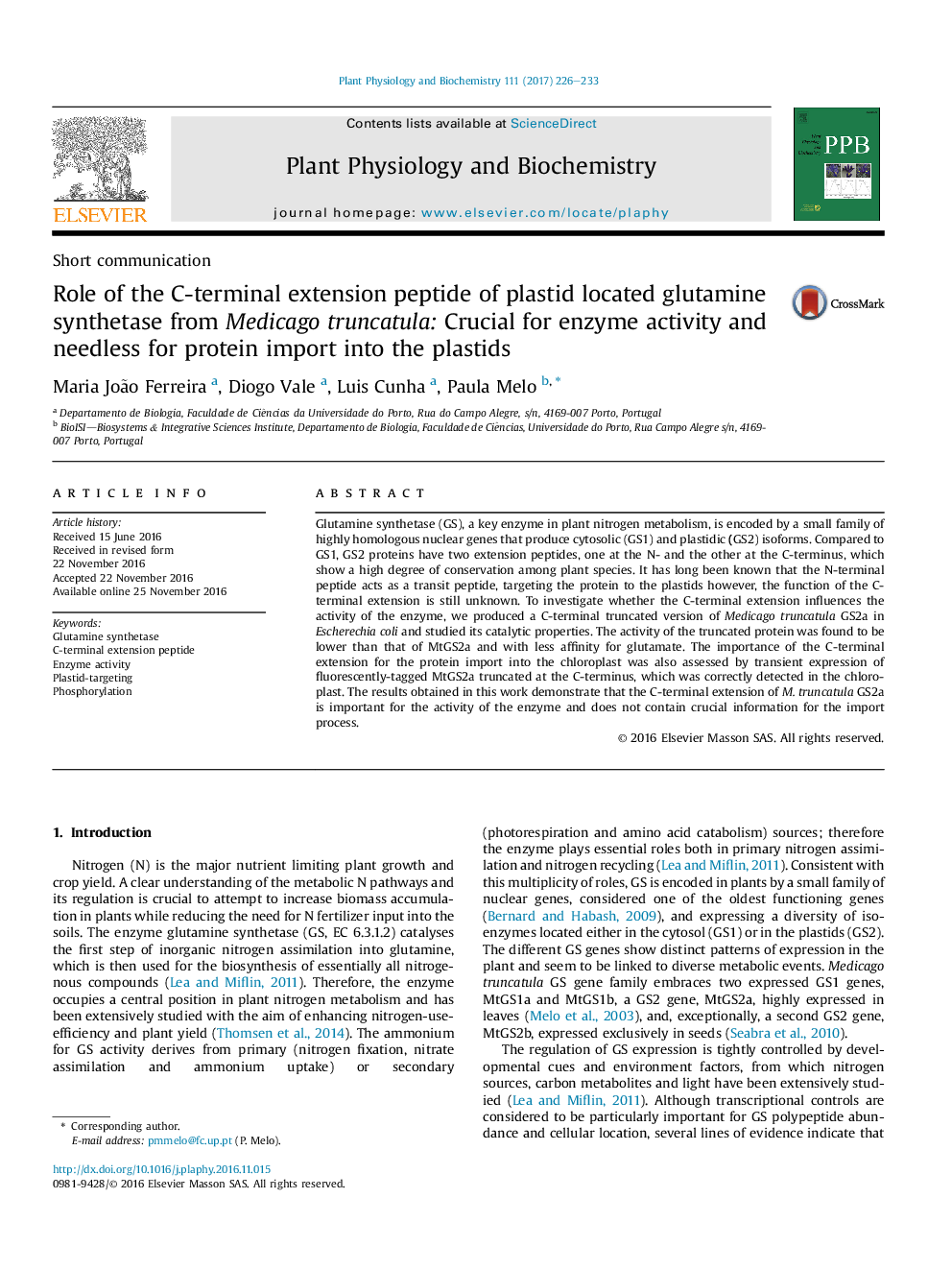| Article ID | Journal | Published Year | Pages | File Type |
|---|---|---|---|---|
| 5515547 | Plant Physiology and Biochemistry | 2017 | 8 Pages |
â¢A physiological role for the C-terminal extension peptide of the plastid located glutamine synthetase (GS2) is proposed.â¢The C-terminal extension of GS2 modulates the affinity to glutamate.â¢The C-terminal extension does not seem to play a role in the import of GS2 to the plastids.
Glutamine synthetase (GS), a key enzyme in plant nitrogen metabolism, is encoded by a small family of highly homologous nuclear genes that produce cytosolic (GS1) and plastidic (GS2) isoforms. Compared to GS1, GS2 proteins have two extension peptides, one at the N- and the other at the C-terminus, which show a high degree of conservation among plant species. It has long been known that the N-terminal peptide acts as a transit peptide, targeting the protein to the plastids however, the function of the C-terminal extension is still unknown. To investigate whether the C-terminal extension influences the activity of the enzyme, we produced a C-terminal truncated version of Medicago truncatula GS2a in Escherechia coli and studied its catalytic properties. The activity of the truncated protein was found to be lower than that of MtGS2a and with less affinity for glutamate. The importance of the C-terminal extension for the protein import into the chloroplast was also assessed by transient expression of fluorescently-tagged MtGS2a truncated at the C-terminus, which was correctly detected in the chloroplast. The results obtained in this work demonstrate that the C-terminal extension of M. truncatula GS2a is important for the activity of the enzyme and does not contain crucial information for the import process.
